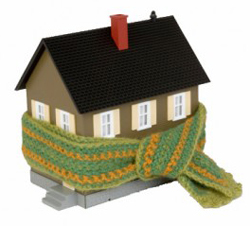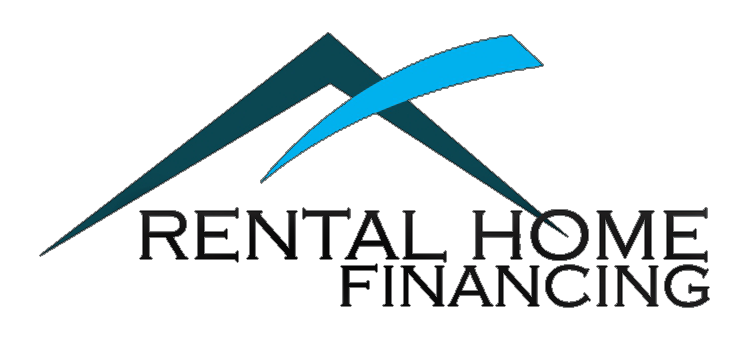Landlord & Investor News
InvestmentLenderLandlordAirBnBBlanket LoanVacation RentalNEWS
 If you think it is easy to secure a business loan for rental property, you are highly mistaken. Investors need to know that investment property loans are different from typical home mortgage. For lenders, these loans are considered as a great risk and they take the risk only when it seems worth taking. Here in this guide investors will understand how investment property are different, how to qualify for this type of loan and from where to get the best deal.
If you think it is easy to secure a business loan for rental property, you are highly mistaken. Investors need to know that investment property loans are different from typical home mortgage. For lenders, these loans are considered as a great risk and they take the risk only when it seems worth taking. Here in this guide investors will understand how investment property are different, how to qualify for this type of loan and from where to get the best deal.
What is investment property loan?
Investors invest in investment property since it gets extra income to the wallet and helps pay off the debts. When purchasing an investment property you need a loan. The business loans for rental property can also be used for refinancing an existing investment, or for real estate development. The mortgage rate and terms depend up on your credit history and these two factors will determine your monthly mortgage payments. There are basically two types of investment property loans: Residential & Commercial.
Buying Your First Rental Property
 To finance an investment property you need a business loan. Business loans for rental property are every newbie investor's nightmare. Yet, it is exactly the forbidden fruit you are going to have to taste in order to create a successful rental portfolio. A new investor might have read real estate magazines, books and blogs. But nothing teaches more than experience.
To finance an investment property you need a business loan. Business loans for rental property are every newbie investor's nightmare. Yet, it is exactly the forbidden fruit you are going to have to taste in order to create a successful rental portfolio. A new investor might have read real estate magazines, books and blogs. But nothing teaches more than experience.
You are not alone since buying a rental property involves many considerations. Trust building and relationship with brokers plays an important step. We are here to help you through the process to make your first rental property an easy investment.
Here are 5 more credible steps that you need to take in order to secure the right commercial real estate loan.
 Long-term Rental Property Investments
Long-term Rental Property Investments
A rental property investor worth his salt knows which one is a flip property and which is a long-term investment. Ideally, such a house must maintain its long-term wealth and also improve upon it to deliver handsome returns.
Of course, all this should come in addition to the rental value increments. Not to forget, the maintenance and repairs should also be minimum. When you are taking business loans for rental property, you expect to close the perfect deal.
Out-of-State Rental Property - The Inside Scoop
 Are rental home loans in your area getting more expensive due to rising real estate prices? Property and mortgages have risen significantly in the past few years and rental portfolios are no different. Great rental properties are now harder to find. So should you look outside your operations area, probably another state? Let's find out.
Are rental home loans in your area getting more expensive due to rising real estate prices? Property and mortgages have risen significantly in the past few years and rental portfolios are no different. Great rental properties are now harder to find. So should you look outside your operations area, probably another state? Let's find out.
What are turn-key rental homes?
Turnkey properties have various definitions. Generally, a property well-repaired and ready-to-move can be termed, turnkey. If a rental home, it should be well managed by a rental property management firm and possibly on a long-term lease. Such rentals are becoming popular since you can buy them without having to deal with a local Realtor in that area. However, there is always an air of caution in turn-key properties since the exact performance of out-of-state properties is hard to measure.
Private Money for Flipping Houses
 Some of the best rental home portfolios have been started with private lenders. Rental home loans are not the same as private lenders especially when it comes to flipping. Usually, the biggest hurdle is the down payment.
Some of the best rental home portfolios have been started with private lenders. Rental home loans are not the same as private lenders especially when it comes to flipping. Usually, the biggest hurdle is the down payment.
A down payment can come from a private lender to help you qualify for a loan from a hard money lender's bridge loan. A lot of private money flows into the successful flipper's portfolios.
Going private with your startup money not only gives you flexibility but also involves lesser money compared to traditional ways. This may mean taking on a partner to get your investment portfolio started but we all have to start somewhere.
Basics of Private Money Lending
Private money basically comes from rich individuals (friends, family, investors or business houses) with lots of cash to sponsor someone's rental portfolio. Consider them as private rental home loans from private individuals for down payments.
However, trusted private lenders are hard to come by, and getting investments from them is further tough. Interest rates can vary from low single digits to as high as 12 percent or a percentage of the profits from the sale or rental income later. The terms are also dictated by the lender.
Business loans for rental property – Is it a smart move in today's market?
 Pricing on homes is on the increase and interest rates remain low, does that mean we should buy, sell, and or hold on to new investments? The quick answer is YES, be smart and you can do well with your rental home loans.
Pricing on homes is on the increase and interest rates remain low, does that mean we should buy, sell, and or hold on to new investments? The quick answer is YES, be smart and you can do well with your rental home loans.
Low-interest rates are attracting buyers to rental real estate and prime locations are being purchased quickly making prices rise in desirable areas. 85% of metro areas have seen a rise in single-family home prices in the past years with predictions of continued growth in America. - source: National Association of Realtors.
Although interest rates remain low, financing is not as easy as it used to be; tightened credit requirements are making it more challenging to secure loans for investment properties. However, with the right preparation and information, getting business loans for rental property can be easier than anticipated.
U.S. Single-Family Rentals Forecast For Q1 2015
 Many good options exist for single-family residential rental investors in different U.S. counties. It is now possible for savvy real estate investors to get double-digit returns and rents that escalate more than 10 percent a year. According to a report released by RealtyTrac, about 20 markets have the potential to deliver returns that soar more than 15% and many over 20% during Q1 2015.
Many good options exist for single-family residential rental investors in different U.S. counties. It is now possible for savvy real estate investors to get double-digit returns and rents that escalate more than 10 percent a year. According to a report released by RealtyTrac, about 20 markets have the potential to deliver returns that soar more than 15% and many over 20% during Q1 2015.
According to a recent report that analyzed U.S. single-family housing data, there are many good options available for single-family residential investors. It is estimated that single-family residential rental properties will bring in an average return of 9.05% during this year's first quarter, but 20 individual markets show the possibility of returns that soar more than 15%.
How to Winterize Rental Property Like a Pro
 Protect financed investments of rental property over the winter, it's eaiser than you think. Ideally, your rental property wouldn’t remain vacant over the winter — and of course you should continue advertising your vacant properties despite the weather conditions.
Protect financed investments of rental property over the winter, it's eaiser than you think. Ideally, your rental property wouldn’t remain vacant over the winter — and of course you should continue advertising your vacant properties despite the weather conditions.
But before that, it is important that you weatherize your unoccupied building before the weather dips below freezing — so now let’s talk about how to do it.
Listed below are some preventive measures you should take before the old man winter knocks on the door.
Importance of Hiring a Property Manager For Your Single-Family Rentals
 Hiring a property manager for your single-family rentals is important for protecting your investment and maximizing income. The single-family investment climate is a well-known financial strategy in the U.S.
Hiring a property manager for your single-family rentals is important for protecting your investment and maximizing income. The single-family investment climate is a well-known financial strategy in the U.S.
Say you have purchased or inherited a home, or perhaps you were transferred but don’t want to sell your home yet. From a management point of view, you have two options, either manage the property yourself or hire a property manager to look after it.If you hire a property manager they deal with many issues involved with property management on your behalf.
More...
Trends in population growth are key indicators.
 When it comes to population and job growth – we have seen suburban growth surpassing the large cities. This trend that continued for more than half a century is now changing. The suburban growth is stalling to say the least.
When it comes to population and job growth – we have seen suburban growth surpassing the large cities. This trend that continued for more than half a century is now changing. The suburban growth is stalling to say the least.
We are hearing for many years now that the 'Millennial Generation' favors city centers and other areas close to their place of employment as ideal places to live in.
Now it usual scenario that jobs are again shifting back into city centers from the suburban environments.
More Renters Plan to Remain Long-Term Tenants
 Many renters are planning to continue renting for a long-term as they aren't ready for the ownership responsibilities. According to a recent survey from Freddie Mac more than 60 percent of the current renters in the US plan to live on rent for a longer period. This wasn't the case a few decades back. Nowadays, renters see both positive and negative aspects of their living arrangements. And this trend is here to stay.
Many renters are planning to continue renting for a long-term as they aren't ready for the ownership responsibilities. According to a recent survey from Freddie Mac more than 60 percent of the current renters in the US plan to live on rent for a longer period. This wasn't the case a few decades back. Nowadays, renters see both positive and negative aspects of their living arrangements. And this trend is here to stay.
Freddie Mac commissioned Harris Poll to survey more than 2,000 adults to understand what tenants think about renting. The data provides significant insights into the thoughts, plans and financial situation of the tenants. This can help single-family rental investors in planning out their future strategies as well wit respect to the rent vs owning debate.
 Navigating the tough waters of tax laws in USA can be tricky especially if you are a landlord. If you are a landlord, it is important that you know the type of expenses you can deduct for your rental property to help you reduce your taxable income, which eventually reduces your tax liability. Here are the top tax deductions for landlords.
Navigating the tough waters of tax laws in USA can be tricky especially if you are a landlord. If you are a landlord, it is important that you know the type of expenses you can deduct for your rental property to help you reduce your taxable income, which eventually reduces your tax liability. Here are the top tax deductions for landlords.
1. Depreciation
The depreciation expense applies to those things that you have bought for your business which have a useful life even after the current tax year. Here are the three rules to calling something depreciable:
- Expected to last for more than one year.
- Provides value to your business in some way.
- Becomes invaluable or wears out over time.
Millennials fuel  new rental markets
new rental markets
Millennials are on the move, says RealtyTrac – a real estate data analytics firm.
Millennials account for 69 million people and are the country’s second-largest generation after the baby boomers. Their choice of whether to rent or buy will have a greater impact on housing. The aftermath of this impact will clearly be visible in rental property availability, real estate sales, lease rates, and house prices.
According to Daren Blomquist, vice president of RealtyTrac, millennials are the key to consistent real estate recovery.
RealtyTrac also analyzed Census Bureau population data between the years 2007 and 2013 to look for the markets with the highest millennial shifts.
Rental Home Financing
9465 Counselors Way
Suite #200,
Indianapolis, IN 46240
About Rental Home Financing:
Rental Home Financing, as the best mortgage lenders we originate rental home loan products and cash out refinance investment property loans as the best investment property refinance lenders. Commercial blanket loans are available with a commercial purpose to suit your needs.
Also, as DSCR loan specialists, we are currently authorized to make such loans in most all areas of the United States. Specific circumstances will determine whether we have the ability approve/close portfolio rental home loans in your state(s). When you are ready to get a mortgage for rental property, we are ready to serve you.



 new rental markets
new rental markets